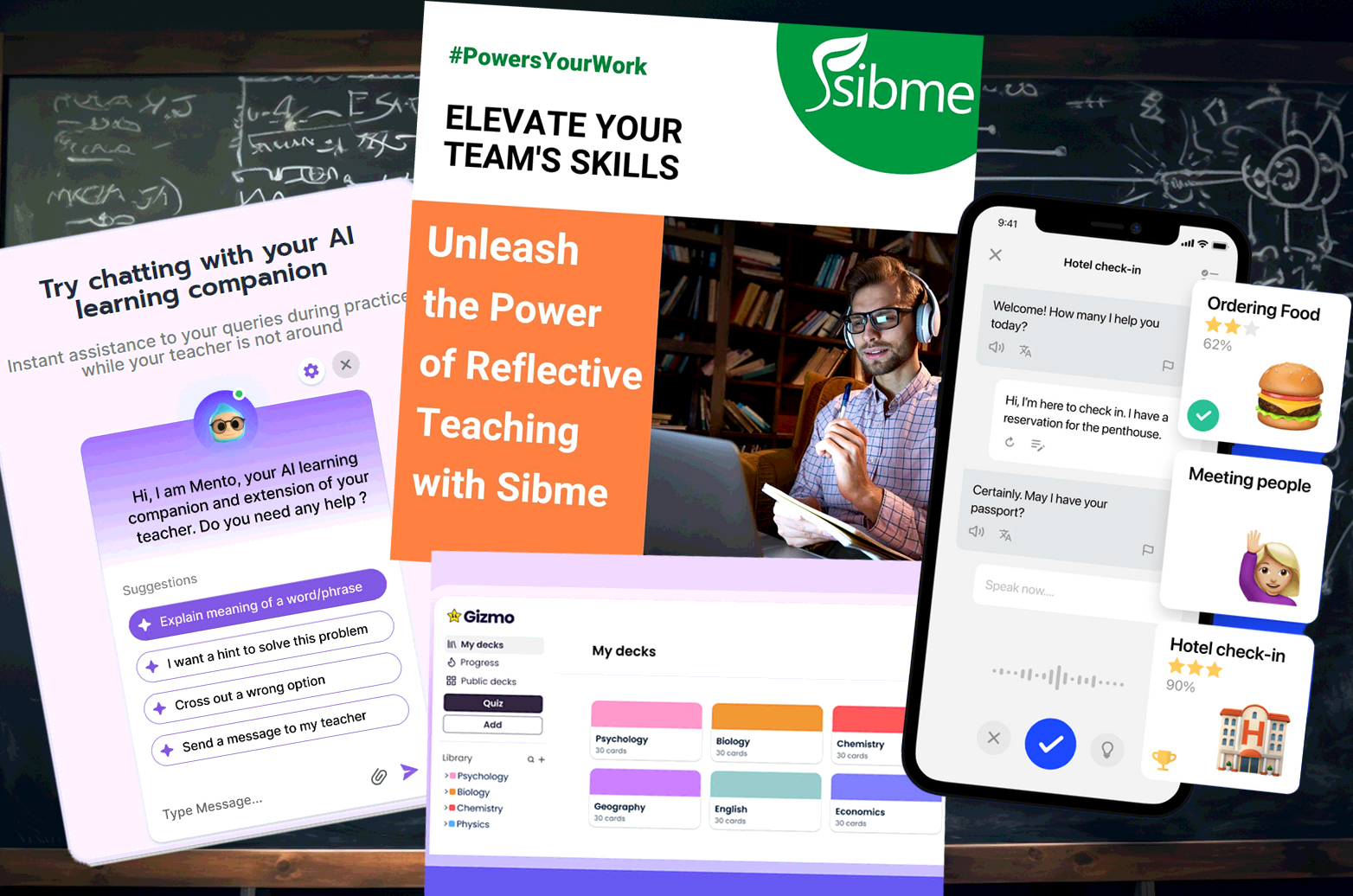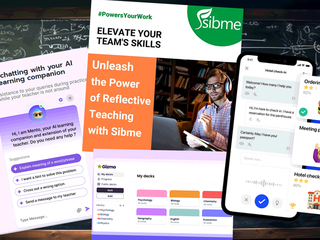Personalization has been the hot topic since marketers realized that people have to like ads. Ironically, it was the smart machine that made personalization a pervasive principle in innovative anything. It is now a matter of time before every interface we use as a consumer is personalized to our liking. There is one overlooked but crucial area where personalization is still catching up – education. But no one would argue: individual approach is what every student needs.
In this review, let’s look at a few fresh AI applications in the edtech space that are getting investor attention – and close in on some personalization features.

Virtual study buddy
If your child is the kind who needs a bit of a nudge and could use a study buddy, this startup has a solution for you. MentoMind has been building every student’s personal tutor – and has just released its full product after securing $1.5 million seed capital in September.
Mento is a virtual helper tool using conversational AI and gamification to boost K-12 students’ learning and prep for SAT exams. MentoMind bases its principles on the “behavioral nudge” theory, according to which individuals make better effort when they get that little motivational push from the side. MentoMind is also collaborating with private tutors and schools to build student insights for teachers, parents, and school staff.
Today, according to the company’s website, 25,000 students are using MentoMind. A free starter plan is currently available on the platform for those who have just started preparing for SAT. That includes skill tracking and analysis, unlimited practice and challenges, play with friends and AI, instant AI companion, and an adaptive SAT sample test. A paid version with more features is shown as “coming soon.”
While MentoMind’s current offering focuses specifically on SAT preparation, CEO Amit Jain told Technically Media the company will “eventually” expand to more use cases around learning, including higher education.
Gamification
Gizmo uses generative AI to offer its solution: gamified quizzes. Students can upload content such as class notes, PDFs, PowerPoint slides, websites, or videos – and the tool, developed by three Cambridge University alumni, will in turn generate flashcards and fun multiple-choice quizzes.
In the free version, users are limited on the number of wrong answers they’re allowed in a certain time frame, while the paid version, worth $8.80 per month, gives unlimited access. Gizmo relies on interactivity, engagement, and socialization to make learning fun. Students are prompted to complete daily streaks and can see how they rank among their friends on the platform.
The company raised its $3.5 million seed in September, with investors NFX in San Francisco and Israel, U.K.-based Ada Ventures, and Capital T in Amsterdam. The new funding will help Gizmo expand globally – and the fast-growing startup boasted 300,000 users as of September already.
Breaking the conversation barrier
This startup set the AI tutor to work in the language education space, now offered for English and Spanish learners. Speak helps break that conversational barrier that foreign language learners often face, being able to understand but unable to support a dialogue. With this AI chatbot, you don’t have to be self-conscious about saying something wrong while getting instant feedback.
Speak has attracted some prominent investors and closed its latest round, Series B-2, in August. It raised $16 million from angel investor Lachy Groom, OpenAI Startup Fund, San Francisco VC firm Neo, GSV in Redwood City, and the founders of Dropbox, Drew Houston and Arash Ferdowsi. Overall, Speak has raised a whopping $63 million since inception and doubled in valuation over the past year.
Founded in San Francisco, the app targeted South Korea first, and it has gained a serious following there – 6% of the entire population as of late August, according to the company. This year, Speak expanded to 20 additional countries and prepares to release more languages into its platform.
Teacher support
On the other side, the teachers are also getting to utilize that AI potential: Sibme is building its platform for self-reflection, coaching, and collaboration to make education more efficient. The Texas-based company, founded in 2013, has attracted more than 100,000 users so far.
Sibme transcribes video and audio to then generate reports with tailored metrics that allow teachers to reflect on their lectures, share and collaborate with other educators, and provide insight for instructional coaching. Here are some factors Sibme can analyze: time of teacher vs. student talking, student participation, types of language and questions asked, level of rigor, tone of voice and overall sentiment, and behavior praise.
Sibme has its network of instructional coaches, who provide schools targeted support in the form of personalized guidance, encouragement, and suggestions for teachers.
No typical student
Here’s Atypical AI, a San Francisco startup at a very early stage made up of execs and researchers from top high-techs that raised $4 million in a pre-seed round three months back. The funding will help bring generative AI tools to learners, educators, parents, and education content creators.
Atypical AI is led by ex-Google and Stanford tech leader and researcher Bethany Maples. Investors in Atypical AI were the German 468 Cap, Accelerator Ventures in San Francisco, Ascend VC in Seattle, Bloomberg Beta, SNR, Frederic Laluyaux, Erik Blachford, Craig Sherman, Anthony Lee, Daniel Sturman from Roblox, Dan Carroll from Clever, Mindful VC in Menlo Park, as well as execs from Apple AI and Google AI.
On its website, the startup proclaims: “We believe that there are no typical learners. Every person is unique. The power and promise of artificial intelligence in education is being able to help each learner in their unique way, while moving cohorts ahead together and fostering insightful and high-value teacher-student interactions.”
Images: MentoMind, Sibme, Gizmo, Speak, Rawpixel


















